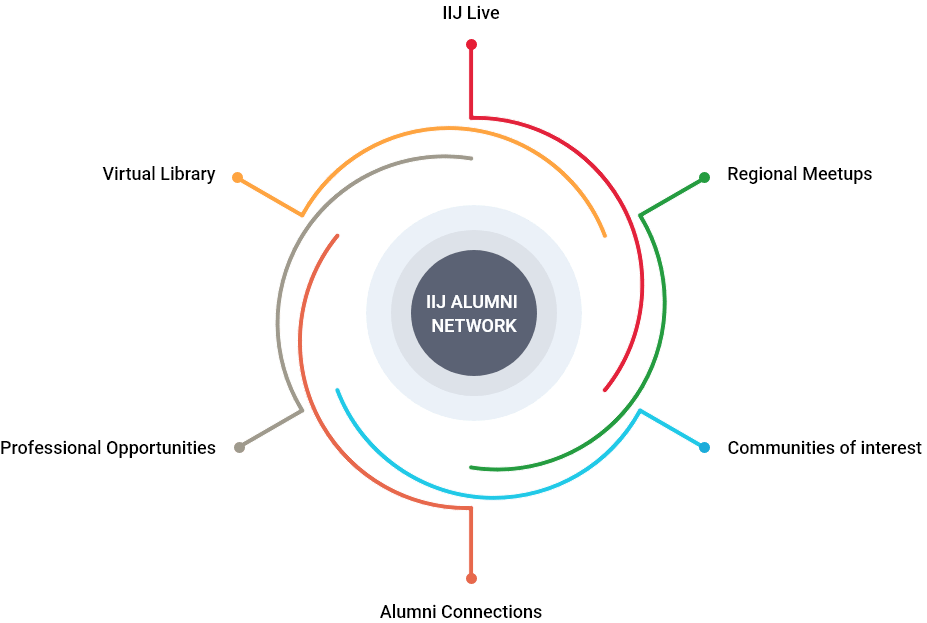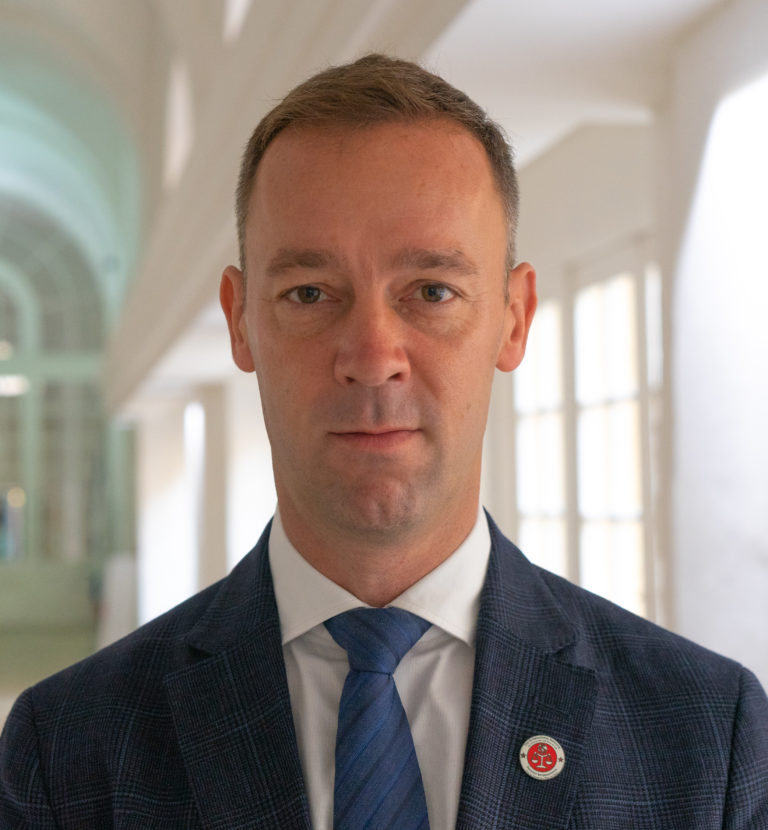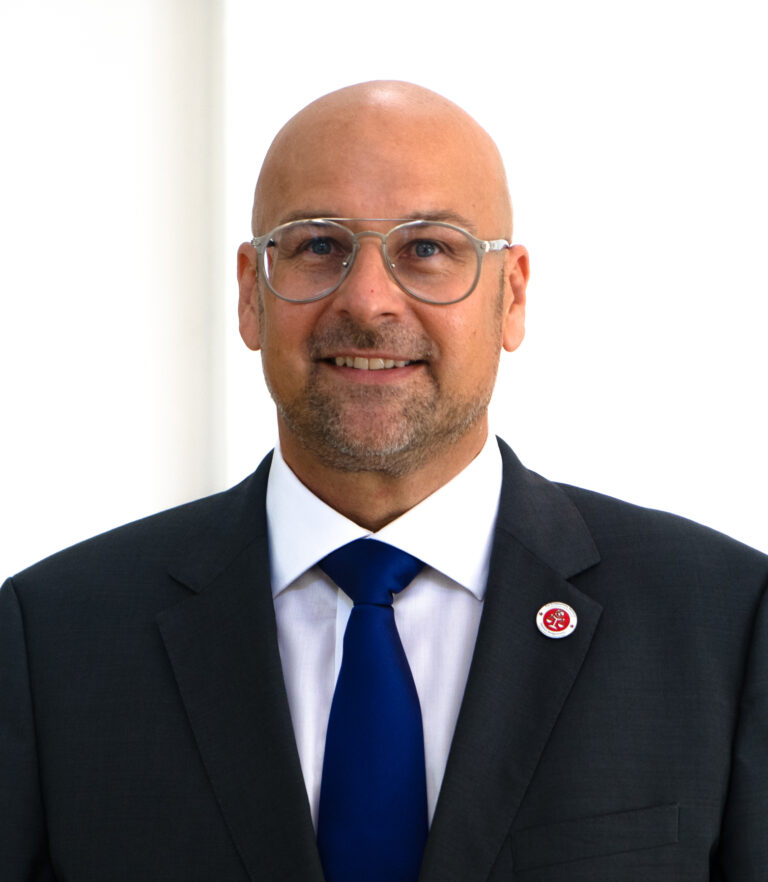Investments in Sustainable Impact
Monitoring & Evaluation
Monitoring and Evaluation (M&E) are crucial steps in the delivery of effective and sustainable capacity-building, and key priorities for the IIJ.
The IIJ is investing considerable resources in the development of a forward-leaning IIJ Monitoring & Evaluation Strategy, a foundation upon which to institutionalise and operationalise a systematic M&E framework and to effectively address the challenges of measuring impact in the field.
Led by a full-time M&E Manager, working in collaboration with the Academic and Programmatic Unit delivery teams, the IIJ’s comprehensive Results-Based Monitoring and Evaluation (RBM&E) approach is an essential feature of our capacity-building programme cycle, with sustainability of skills learned and applied in praxis as core metrics through which to assess the success of the IIJ mission.
Central to the implementation of an effective M&E Strategy is the parallel establishment of a robust M&E culture to strengthen collaboration, learning and institutionalisation across all decision-making. The IIJ is committed to the development and continuous improvement of higher-level and in-depth impact assessments, collaboration, data collection, information management, and diversification of resources.
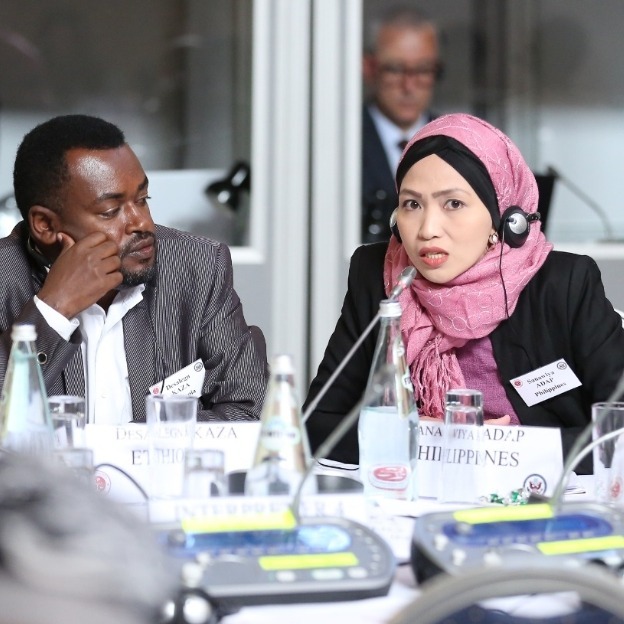
Closing the Gender Gap
Women have critical roles to play in the delivery of rule of law- and human rights-compliant criminal justice. Actively promoting and encouraging gender equality across all IIJ activities, and providing a platform for women to demonstrate their leadership, expertise and perspectives in what has – in many countries – been a a traditionally male-dominated criminal justice sector, is a priority for the IIJ and the donors with whom we work.
Elevating female practitioners, as presenters, facilitators and leaders across our work, recognises gender equality and women’s empowerment as both an objective and a requirement for addressing effectively the ever evolving terrorism and transnational threat landscape.
Gender disparities persist at all levels, whether that be within the criminal justice sector, political and economic institutions, and at the community level. While some progress has been made, the IIJ is committed to doing all it can to encourage partner governments to nominate female practitioners to our courses, to elevate women across our activities, and demonstrate – through action – the important roles that women and gender equity plays in the countering terrorism and violent extremism.
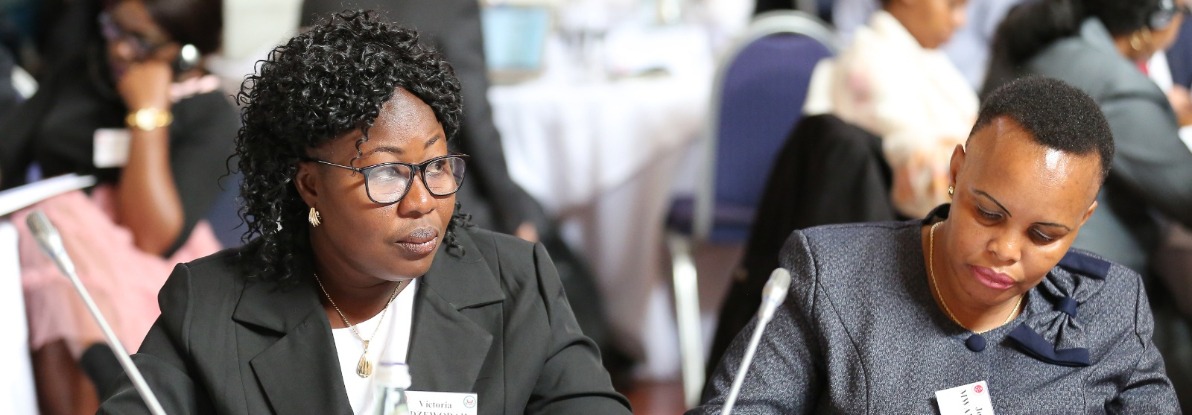
Alumni Network
Alumni of IIJ capacity-building courses and workshops hail from more than 123 countries. They include policymakers, intelligence officials, prosecutors, judges, investigating magistrates, defence counsel, prison and corrections officials, and other stakeholders. The IIJ’s peer-to-peer training environment ensures that practitioners who complete an IIJ course or workshop not only develop skills relevant to their national and regional contexts, but benefit from a network of practitioner colleagues facing similar challenges and opportunities in their daily work.
A new Alumni Network Portal, launching in December 2021, will further facilitate and support this peer to peer exchange through a dedicated and secure gateway on this, our new IIJ website. Alumni will have access to unique multimedia content and activities to further support them in their work.
Staying Connected with the IIJ Alumni Portal
The new IIJ Alumni Network Portal will be an essential resource for practitioners who have taken part in IIJ courses and workshops.
As an IIJ Alum you are a member of a global community committed to advancing rule of law- and human rights-compliant measures to counter terrorism and violent extremism.
The skills, strategies and contacts you developed in IIJ courses and workshops will be further enhanced through the IIJ Alumni Network, with exclusive access to an expanding Virtual Library, Discussion Boards, Research & Scholarship, Professional Opportunities, IIJ live-streamed events, and the ability to connect with more than 7000+ practitioners and the IIJ’s global partner network.
